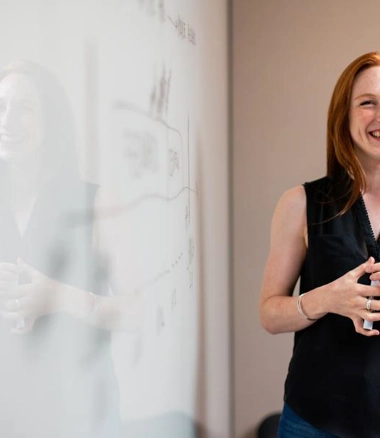What is Digital Engineering and what does it mean for the Construction & Property Industry?
Next, in our digital engineering series, we sat down with Suibhne Cullen, Technical Director - Digital Design and Delivery at Mott Macdonalds, and SYD BIM Committee Member to talk all things Digital Engineering, and hopefully, offer a little bit more clarity to the industry on what all the hype is about!
CR: What is digital engineering? How would you define it?
Digital Engineering is a broad term which gathers several other related technologies or processes together, such as CAD, BIM, GIS and Data Science. Essentially it ties together the project to asset lifecycle application of these elements to culminate in a digital twin or virtual asset. The term has existed for a number of years, but for the most part, it’s popular application in Australia & New Zealand can probably be attributed to the TfNSW DE Framework Panel Team.
CR: How would you classify the difference between digital and BIM?
Digital is a super broad term in our industry and can be somewhat confusing if not given context. I’ll probably get in trouble for this but from a macro perspective, BIM is the D&C element of digital engineering, with respect to the complete lifecycle of information. Digital as a whole can be seen as an overarching intent to adopt new technologies, processes and innovations of which BIM is an element. Other elements or sub-sets, within the construction sector, which might be seen as digital engineering would be drones, point cloud survey, photogrammetry, AR, VR, MR, Computational Design, Additive Manufacturing, Artificial Intelligence etc.
CR: Who is involved and whom does it affect?
SC: Everyone? With respect to Digital Engineering, it is a symptom of the larger digital transformation of a host of sectors/industries. Within the construction industry, it has been primarily pushed initially by the supply chain and more recently has moved to a requirement by client organisations. Digital Engineering itself though, will impact in some way everyone delivering projects ‘digitally’ in the coming years.
CR: What are the benefits of ‘digital engineering’?
SC: So many intangible benefits and complimentary outputs to speak of. However, the three highlight benefits are still seeing, knowing and planning i.e. seeing, visualisations (3D, AR, VR etc.), knowing, data (consistent coordinated assets) and planning proactively (cost, time, risk, logistics, safety, asset maintenance).
CR: What skills/software skills are the most in demand/lacking in the industry?
SC: Speaking of Digital Engineering across ANZ I would say that good capable experienced delivery managers are still worth their weight in gold. As for platform skills, I would say good ProjectWise/BIM360 skills are hard along with the variety of other collaboration/delivery platforms on the market. Platforms like Revit are still the favoured tool for the most part through design and construction. Some skills becoming more desirable are programming i.e. Dynamo and Python etc. as well as data science i.e. data capture, scraping, cleansing, analysis and presentation, and IoT systems integration/development.
CR: How do you see digital changing in the next 5 years?
SC: Big question. As with all changing fields, we will see all the things we consider as fringe today become business as usual and a whole swathe of new tools, technologies and processes come online to disrupt. It will become a busy market in the digital arena with SME’s providing lots of pieces of Digital Engineering as specialities. The larger tier one designers and constructors will either develop or absorb these offerings/skills to leverage for their clients as a more holistic offering supporting ‘Digital Twin’. In saying that, there will be a rich emerging market in blockchain and A.I. applications which will remain speciality for a longer period as they will still be more bespoke.
CR: What advice would you give to an engineer interested in going digital?
SC: Almost all industry peer bodies offer some knowledge base or training in the digital space. Don’t wait, get started.






